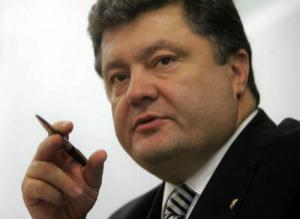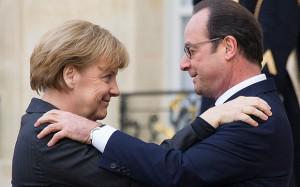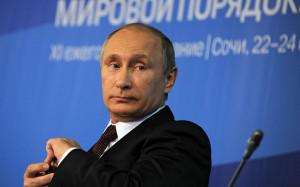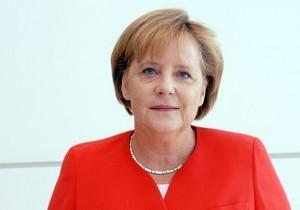Leaders scramble to avert ‘dramatic spiral’ in Ukraine
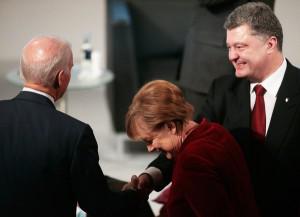
(Reuters) — The leaders of Russia, Ukraine, Germany and France agreed to meet in Belarus on Wednesday to try to broker a peace deal for Ukraine amid escalating violence there and signs of cracks in the transatlantic consensus on confronting Vladimir Putin.
The four leaders held a call on Sunday, two days after Chancellor Angela Merkel and French President Francois Hollande traveled to Moscow for talks with Putin that produced no breakthrough in the nearly year-long conflict that has claimed over 5,000 lives.
After the call, Ukraine President Petro Poroshenko said progress had been made and that he was hopeful the meeting in Minsk would lead to a «swift and unconditional ceasefire» in eastern Ukraine, where pro-Russian separatists have stepped up a military offensive in recent weeks, seizing new territory.
But Putin warned in a newspaper interview that Kiev must stop its military operation in east Ukraine and stop exerting economic pressure on rebel-held regions.
«Kiev’s attempts to exert economic pressure on Donbas (region of east Ukraine) and disrupt its daily life only aggravates the situation. This is a dead-end track, fraught with a big catastrophe,» Putin told Egyptian state newspaper Al-Ahram, according to an English transcript provided by the Kremlin.
A Ukraine military spokesman said on Sunday that intense fighting was continuing around the rail junction town of Debaltseve, with rebel fighters making repeated attempts to storm lines defended by government troops.
At a high-level security conference in Munich over the weekend, Merkel said it was uncertain whether further negotiations would lead to a deal with Putin but argued that all opportunities for a diplomatic solution should be pursued.
She came under sharp criticism from U.S. Senators Lyndsey Graham and John McCain, both Republican hawks, for opposing the sending of defensive weapons to the Ukraine army to help it fight the separatists.
«The Ukrainians are being slaughtered and we’re sending them blankets and meals,» McCain said in Munich. «Blankets don’t do well against Russian tanks.»
U.S. Secretary of State John Kerry sought to play down the differences with Europe.
«Will we remain united? The answer is absolutely, positively, unequivocally we are united, we will remain united,» Kerry told the conference on Sunday, describing any differences as tactical rather than strategic.
Members of the Obama administration are also believed to be skeptical about arming Ukraine but the president faces intense pressure from a Republican-led Congress to act.
The Germans believe sending weapons to a depleted Ukraine army would not improve its chances against separatists armed with «unlimited» supplies of Russian military equipment.
They also fear that delivering arms would internationalize the conflict, playing into the hands of Putin, who has painted the crisis as a Western plot to weaken Russia.
The secretary-general of the Organisation for Security and Cooperation in Europe told Reuters in an interview he was worried direct Western military support for the Ukraine government would fan the flames of the conflict.
«It may even lead down the line to more direct intervention of Russia in this conflict,» Lamberto Zannier said at the Munich Security Conference.
Читать далее: IPnews
Poroshenko sees prospects of ceasefire from next Minsk
Ukrainian President Petro Poroshenko and leaders of Russia, France and Germany expect their talks in Minsk, Belarus, onGermany and France agree with Putin to work toward
The leaders of Germany and France proposed at a meeting with Russian President Vladimir Putin on Friday to draw up aPutin says leaders to meet in Minsk if sides move
(Reuters) — Russian President Vladimir Putin said on Sunday he planned to meet the leaders of Germany, France andMerkel: Europe won’t recognize election in eastern
German Chancellor Angela Merkel told Russian President Vladimir Putin on the phone that Sunday’s planned elections inНет комментариев.
Информация
Посетители, находящиеся в группе Гости, не могут оставлять комментарии к данной публикации.
